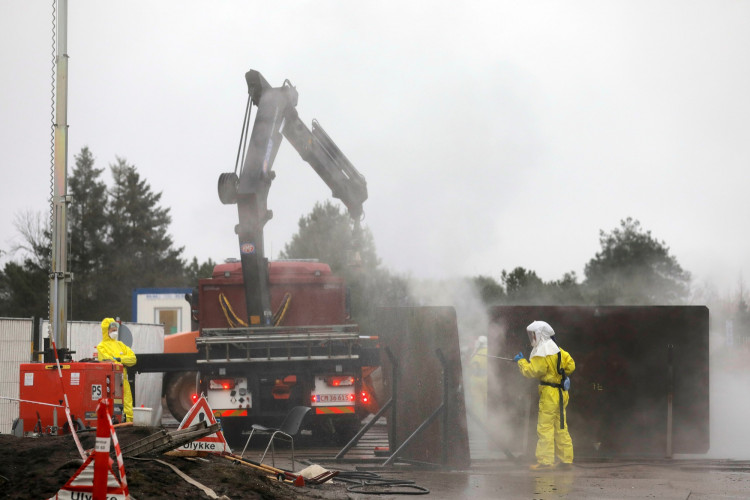Denmark is set to dig up millions of dead and rotting minks after officials authorized a hasty culling of the animals believed to be infected with a mutated coronavirus strain.
The order to dig up the minks comes as the rotting carcasses have now triggered a new contamination risk that could spread disease. Danish parliament said Sunday that it has given the order to dig up around 4 million culled minks.
The Ministry of Food and Veterinary Affairs said that they will be exhuming the rotting corpses from several mass graves. The operation will take place after six months to ensure that the bodies will be free of the coronavirus strain and safe to handle. The agency said that they will be incinerating the carcasses as corporate "waster" after they are exhumed.
Officials hope that the decision to exhume the carcasses will put an end to an embarrassing chapter for the country, which had resulted in the resignation of a Cabinet minister. The issue also stained the country's reputation and besmirched its commendable efforts to fight off the pandemic.
Prime Minister Mette Frederiksen was forced to defend her role in the culling of the animals, which was not legally mandated. The country culled more than 15.4 million minks over the past months - a move that drew harsh criticism globally.
Frederiksen previously said that the culling of the animals was "appropriate" and "necessary." Before the messy and rushed culling of the animals, Danish epidemiologists said that the minks were highly efficient at spreading the virus. The scientists warned that the mutated coronavirus strain the animals were carrying could derail vaccine efforts if it managed to spread to humans.
Apart from Denmark, other countries that produce mink furs have also detected coronavirus strains in the animals. Spain, the Netherlands, Sweden, the U.S., and Italy have reported infections in some of their mink farms. None of the countries have taken measures as drastic as those taken by Denmark.
"[The mink infections in Denmark] highlights the important role that farmed mink populations can play in the ongoing transmission of SARS-CoV-2 and the critical role of strong surveillance, sampling and sequencing SARS-CoV-2, especially around areas where such animal reservoirs are identified," the World Health Organization said.





